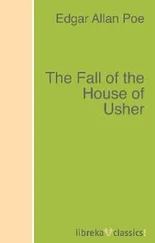Charles Bradlaugh - The Impeachment of the House of Brunswick
Здесь есть возможность читать онлайн «Charles Bradlaugh - The Impeachment of the House of Brunswick» — ознакомительный отрывок электронной книги совершенно бесплатно, а после прочтения отрывка купить полную версию. В некоторых случаях можно слушать аудио, скачать через торрент в формате fb2 и присутствует краткое содержание. Жанр: foreign_prose, на английском языке. Описание произведения, (предисловие) а так же отзывы посетителей доступны на портале библиотеки ЛибКат.
- Название:The Impeachment of the House of Brunswick
- Автор:
- Жанр:
- Год:неизвестен
- ISBN:нет данных
- Рейтинг книги:4 / 5. Голосов: 1
-
Избранное:Добавить в избранное
- Отзывы:
-
Ваша оценка:
- 80
- 1
- 2
- 3
- 4
- 5
The Impeachment of the House of Brunswick: краткое содержание, описание и аннотация
Предлагаем к чтению аннотацию, описание, краткое содержание или предисловие (зависит от того, что написал сам автор книги «The Impeachment of the House of Brunswick»). Если вы не нашли необходимую информацию о книге — напишите в комментариях, мы постараемся отыскать её.
The Impeachment of the House of Brunswick — читать онлайн ознакомительный отрывок
Ниже представлен текст книги, разбитый по страницам. Система сохранения места последней прочитанной страницы, позволяет с удобством читать онлайн бесплатно книгу «The Impeachment of the House of Brunswick», без необходимости каждый раз заново искать на чём Вы остановились. Поставьте закладку, и сможете в любой момент перейти на страницу, на которой закончили чтение.
Интервал:
Закладка:
In 1735 sixteen Scottish peers were elected to sit in the House of Lords, and in a petition to Parliament it was alleged, that the whole of this list of sixteen peers was elected by bribery and corruption. The petition positively asserted "that the list of sixteen peers for Scotland had been formed by persons high in trust under the crown, previous to the election itself, The peers were solicited to vote for this list without the liberty of making any alteration, and endeavors were used to engage peers to vote for this list by promise of pensions and offices, civil and military, to themselves and their relations, and by actual promise and offers of sums of money. Several had received money, and releases of debts owing to the crown were granted to those who voted for this list. To render this transaction more infamous, a battalion of troops occupied the Abbey-Court of Edinburgh, and continued there during the whole time of the election, while there was a considerable body lying within a mile of the city ready to advance on the signal." This petition, notwithstanding the gravity of its allegations, was quietly suppressed.
Lady Sundon, Woman of the Bedchamber and Mistress of the Robes to Queen Caroline, received from Lord Pom-fret jewelry of £1,400 value, for obtaining him the appointment of Master of the Horse.
With a Civil List of £800,000 a year, George II. was continually in debt, but an obedient Ministry and a corrupt Parliament never hesitated to discharge his Majesty's obligations out of the pockets of the unrepresented people. Lord Carteret, in 1733, speaking of a Bill before the House for granting the King half a million out of the Sinking Fund, said: "This Fund, my Lords, has been clandestinely defrauded of several small sums at different times, which indeed together amount to a pretty large sum; but by this Bill it is to be openly and avowedly plundered of £500,000 at once."
On the 27th of April, 1736, Prince Frederick was married to the Princess Augusta, of Saxe Gotha, whom King George II. afterwards described as " cette diablesse Madame la Princesse ." In August of the same year, a sharp open quarrel took place between the Prince of Wales and his parents, which, after some resumptions of pretended friendliness, ended, on September 10, 1737, in the former being ordered by the King to quit St. James's palace, where he was residing. On the 22d of the preceding February, Pulteney had moved for an allowance of £100,000 a year to Prince Frederick. George II. refused to consent, on the ground that the responsibility to provide for the Prince of Wales rested with himself, and that "it would be highly indecorous to interfere between father and son." On the Prince of Wales taking up his residence at Norfolk House, "the King issued an order that no persons who paid their court to the Prince and Princess should be admitted to his presence." An official intimation of this was given to foreign ambassadors.
On the 20th of November, 1737, Queen Caroline died, never having spoken to her son since the quarrel. "She was," says Walpole, "implacable in hatred even to her dying moments. She absolutely refused to pardon, or even to see, her son." The death-bed scene is thus spoken of by Thackeray: "There never was such a ghastly farce;" and as sketched by Lord Hervey, it is a monstrous mixture of religion, disgusting comedy, and brutishness. "We are shocked in the very chamber of death by the intrusion of egotism, vanity, buffoonery, and inhumanity. The King is at one moment dissolved in a mawkish tenderness, at another sunk into brutal apathy. He is at one moment all tears for the loss of one who united the softness and amiability of one sex to the courage and firmness of the other; at another all fury because the object of his regrets cannot swallow, or cannot change her posture, or cannot animate the glassy fixedness of her eyes; at one moment he begins an elaborate panegyric on her virtues, then breaks off into an enumeration of his own, by which he implies that her heart has been enthralled, and her intelligence awed. He then breaks off into a stupid story about a storm, for which his daughter laughs at him, and then while he is weeping over his consort's death-bed, she advises him to marry again; and we are – what the Queen was not – startled by the strange reply, 'Non, faurai des maitresses,' with the faintly moaned out rejoinder, 'Cela, n'empeche pas.'" So does the Edinburgh reviewer, following Lord Hervey, paint the dying scene of the Queen of our second George.
After the death of the Queen, the influence of the King's mistresses became supreme, and Sir R. Walpole, who, in losing Queen Caroline had lost his greatest hold over George, paid court to Lady Walmoden, in order to maintain his weakened influence. In the private letters of the Pelham family, who succeeded to power soon after Walpole's fall, we find frequent mention of the Countess of Yarmouth as a power to be gained, a person to stand well with. "I read," says Thackeray, "that Lady Yarmouth (my most religious and gracious King's favorite) sold a bishopric to a clergyman for £5,000. (He betted her £5,000 that he would not be made a bishop, and he lost, and paid her.) Was he the only prelate of his time led up by such hands for consecration? As I peep into George H.'s St. James's, I see crowds of cassocks rustling up the back-stairs of the ladies of the Court; stealthy clergy slipping purses into their laps; that godless old Bang yawning under his canopy in his Chapel Royal, as the chaplain before him is discoursing."
On the 23d of May, 1738, George William Frederick, son of Frederick, and afterwards George III., was born.
In 1739 Lady Walmoden, who had up to this year remained in Hanover, was brought to England, and formally installed at the English Court. In this year we bound ourselves by treaty to pay 250,000 dollars per annum for three years to the Danish Government. "The secret motive of this treaty," says Mahon, "as of too many others, was not English, but Hanoverian; and regarded the possession of a petty castle and lordship called Steinhorst. This castle had been bought from Holstein by George H. as Elector of Hanover, but the Danes claiming the sovereignty, a skirmish ensued… The well-timed treaty of subsidy calmed their resentment, and obtained the cession of their claim." Many urged, as in truth it was, that Steinhorst was bought with British money, and Bolingbroke expressed his fear "that we shall throw the small remainder of our wealth where we have thrown so much already, into the German Gulf, which cries Give! Give! and is never satisfied."
On the 19th of May, 1739, in accordance with the wish of the King, war was declared with Spain, nominally on the question of the right of search, but when peace was declared at Aix-la-Chapelle, this subject was never mentioned. According to Dr. Colquhoun, this war cost the country, £46,418,680.
George II. was, despite the provisions of the Act of Settlement, continually in Hanover. From 1729 to 1731, again in 1735 and 1736, and eight times between 1740 and 1755. In 1745 he wished to go, but was not allowed.
On the 2d of October, 1741 (the Pelham family having managed to acquire power by dint, as Lord Macaulay puts it, of more than suspected treason to their leader and colleague), the Duke of Newcastle, then Prime Minister, wrote his brother, Henry Pelham, as follows: "I must freely own to you, that I think the King's unjustifiable partiality for Hanover, to which he makes all other views and considerations subservient, has manifested itself so much that no man can continue in the active part of the administration with honor." The Duke goes on to describe the King's policy as "both dishonorable and fatal;" and Henry Pelham, on the 8th of October, writes him back that "a partiality to Hanover is general, is what all men of business have found great obstructions from, ever since this family have been upon the throne." Yet these are amongst the most prominent of the public defenders of the House of Brunswick, and a family which reaped great place and profit from the connection.
Читать дальшеИнтервал:
Закладка:
Похожие книги на «The Impeachment of the House of Brunswick»
Представляем Вашему вниманию похожие книги на «The Impeachment of the House of Brunswick» списком для выбора. Мы отобрали схожую по названию и смыслу литературу в надежде предоставить читателям больше вариантов отыскать новые, интересные, ещё непрочитанные произведения.
Обсуждение, отзывы о книге «The Impeachment of the House of Brunswick» и просто собственные мнения читателей. Оставьте ваши комментарии, напишите, что Вы думаете о произведении, его смысле или главных героях. Укажите что конкретно понравилось, а что нет, и почему Вы так считаете.











